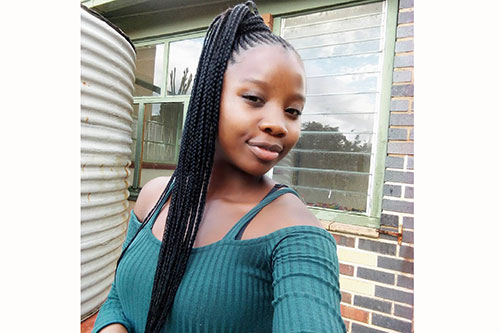Loide Elzaan Nampala
When we hear the word romantic relationship, what often comes to our mind is an interaction between two partners which is characterised by specific expressions of affection and intimacy.
Two people spending quality time together, sharing gifts to show appreciation, and putting a smile on each other’s faces. Physical contact is an important part of relationships to all because it is a basic need to touch and be touched. All this is part of the love language, and is what most of us yearn for in a relationship.
Sadly, for persons with disabilities, they are set apart, labelled and too often not perceived as sexual beings, only as people who deserve pity, and that romantic relationships are not for them.
People with disabilities face numerous challenges in romantic relationships and their society as a whole. Many classify persons with disabilities as unable and incapable of participating fully in all aspects of life, and view them negatively, with no feelings or emotional needs. Persons with disabilities are discriminated against in many ways, expected not to have sex, not to have partners, not to get married or have children. Some people believe that persons with disabilities can only give birth to babies with disabilities, which in almost all cases is not true.
Progressive-thinking/open-minded people without disabilities are sometimes criticised for engaging in relationships with persons with disabilities. People have been known to say things like – “How can you date a blind girl? How will she assist you in your household”, or “you are dating a person using a wheelchair, how do you have sex? Do you have sex?” It’s sad and discouraging to hear comments like this about persons with disabilities.
Persons with disabilities who are in romantic relationships sometimes face the challenges of being physically and emotionally abused. They struggle with low self-esteem, and may already have psychological issues of not being wanted, as well as face the stigma which comes when bearing a child. Some persons with disabilities are used for their money (disability grant) and once the grant is done, they are left in the dark.
Persons with disabilities are worthy, beautiful and unique, part of diversity in any society. They must know their worth, and not buy love with money and material things. There is no shame in dating. We all have sexual needs, and having a partner should be a safe space, not something you feel ashamed about. Dating a person with disabilities is normal, but because of stigma and discrimination, communication between the partners is essential.
See the person first, not the disability. Spend time with someone who has a disability. It might be a complex experience, you might feel unsure, and have mixed feelings, but this is understandable. Take time to put yourself in their shoes, and be understanding and empathetic.
*Loide Elzaan Nampala is the regional chairperson of the National Organisation of People With Disabilities, and the information and publicity officer of The Namibian Mental Health Association.


